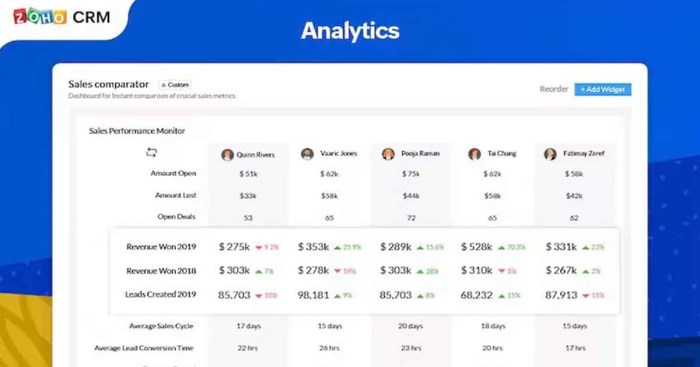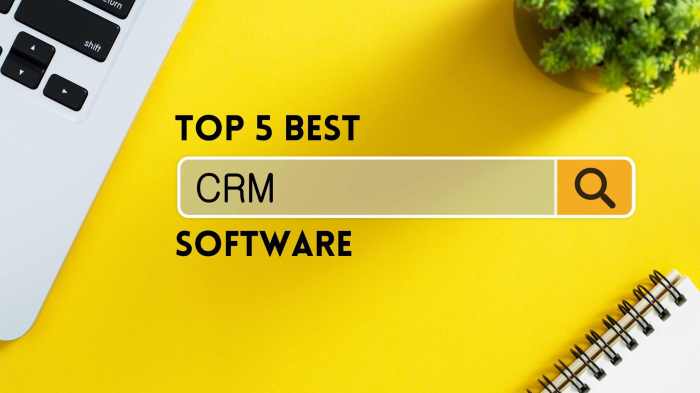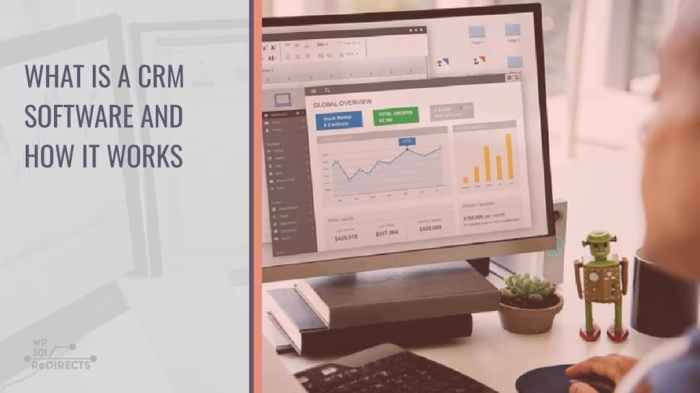Crm with accounting software – In today’s dynamic business environment, efficient management of customer relationships and financial data is paramount for success. Integrating Customer Relationship Management (CRM) software with accounting software offers a powerful synergy, streamlining operations and providing valuable insights for informed decision-making. This comprehensive guide explores the benefits, functionalities, and considerations of integrating these two critical business tools.
Understanding the Synergy: CRM and Accounting Software Integration: Crm With Accounting Software
Traditionally, CRM and accounting systems operated as separate entities. This siloed approach often led to data duplication, inconsistencies, and inefficient workflows. Integrating these systems bridges this gap, creating a unified platform that streamlines processes and improves data accuracy. This integration facilitates a seamless flow of information between customer interactions and financial transactions, providing a holistic view of the business.
Key Benefits of Integration
- Improved Data Accuracy: Eliminates manual data entry, reducing errors and ensuring consistency across both systems.
- Enhanced Efficiency: Automates tasks such as invoice generation, payment tracking, and reporting, freeing up valuable time and resources.
- Better Financial Forecasting: Provides a clearer picture of cash flow, revenue streams, and profitability based on customer interactions and sales data.
- Streamlined Sales Processes: Automates sales order processing, tracks payments, and manages customer accounts efficiently.
- Improved Customer Relationship Management: Provides a 360-degree view of each customer, including their purchase history, payment status, and communication history.
- Enhanced Reporting and Analytics: Generates comprehensive reports on sales performance, customer behavior, and financial health, enabling data-driven decision-making.
- Reduced Operational Costs: Automates manual processes, minimizes errors, and improves efficiency, leading to significant cost savings.
Functionality of Integrated CRM and Accounting Systems
The integration of CRM and accounting software typically involves the seamless exchange of data between the two systems. This exchange can encompass various aspects of the business, including:
Key Data Exchange Points:
- Customer Information: Sharing customer details such as contact information, address, and payment methods between CRM and accounting software ensures consistency and prevents data discrepancies.
- Sales Orders and Invoices: Automating the creation of invoices directly from sales orders within the CRM system eliminates manual data entry and reduces errors. Payment tracking and reconciliation are also streamlined.
- Payment Processing: Integrating payment gateways allows for automated payment processing and reconciliation, providing real-time updates on outstanding payments and cash flow.
- Financial Reporting: Consolidated financial reports that incorporate data from both systems provide a holistic view of the business’s financial health, including revenue, expenses, and profitability by customer or product.
- Inventory Management (for applicable businesses): Connecting inventory levels to sales orders ensures accurate tracking of stock and prevents overselling. This integration is especially beneficial for businesses with physical products.
Choosing the Right CRM and Accounting Software Integration
Selecting the right combination of CRM and accounting software is crucial for a successful integration. Consider the following factors:
Key Considerations:, Crm with accounting software
- Business Size and Needs: The scale of your business will dictate the features and functionalities required in both systems. Small businesses may need simpler solutions, while larger enterprises might require more sophisticated tools.
- Integration Capabilities: Ensure that the chosen CRM and accounting software offer seamless integration capabilities, either through native integration or via third-party APIs.
- Data Security and Compliance: Prioritize systems that offer robust data security features and comply with relevant industry regulations, such as GDPR or HIPAA.
- Scalability and Flexibility: Choose systems that can adapt to your business’s growth and evolving needs. Scalability ensures that the solution can handle increasing data volumes and user demands.
- Cost and ROI: Evaluate the total cost of ownership, including software licenses, implementation costs, and ongoing maintenance. Assess the potential return on investment (ROI) based on improved efficiency and reduced operational costs.
- User-Friendliness: Opt for systems that are intuitive and easy to use for your team, minimizing the learning curve and maximizing adoption rates.
Popular CRM and Accounting Software Combinations
Many popular CRM and accounting software solutions offer native or readily available integrations. Researching specific combinations based on your needs is crucial. Examples include integrations between Salesforce and Xero, HubSpot and QuickBooks, Zoho CRM and Zoho Books, and many others. It’s important to check the specific integration capabilities of your chosen software options.
Frequently Asked Questions (FAQs)
- Q: What are the benefits of integrating CRM and accounting software? A: Integration improves data accuracy, enhances efficiency, streamlines sales processes, improves financial forecasting, and provides a 360-degree view of customers.
- Q: How does integration improve financial reporting? A: It provides consolidated reports that combine data from both systems, offering a holistic view of the business’s financial health.
- Q: What factors should I consider when choosing integrated systems? A: Consider business size, integration capabilities, data security, scalability, cost, and user-friendliness.
- Q: Are there any risks associated with integration? A: Potential risks include data migration challenges, integration complexities, and the need for proper training and support. Careful planning and selection of appropriate software can mitigate these risks.
- Q: How much does it cost to integrate CRM and accounting software? A: Costs vary depending on the software chosen, the complexity of the integration, and the level of customization required. It’s essential to obtain quotes from vendors before making a decision.
- Q: Can I integrate any CRM with any accounting software? A: Not necessarily. Compatibility depends on the APIs and integration capabilities offered by each software. Check for native integrations or the availability of third-party integration tools.
Conclusion
Integrating CRM and accounting software offers significant advantages for businesses of all sizes. By streamlining operations, improving data accuracy, and providing valuable insights, this integration can contribute significantly to business growth and profitability. Careful consideration of your business needs, software selection, and implementation strategy is crucial for a successful and impactful integration.

Source: dainandinnews.com
References
Call to Action
Ready to unlock the power of integrated CRM and accounting software? Contact us today for a consultation to discuss your specific needs and explore the best solutions for your business.
Essential Questionnaire
What are the key benefits of using CRM with accounting software?
Key benefits include improved data accuracy, reduced manual data entry, enhanced reporting and analysis capabilities, better forecasting, streamlined workflows, and a more holistic view of business performance.
How much does integrated CRM and accounting software cost?
Pricing varies significantly depending on the specific software chosen, the number of users, and the features included. It’s best to contact vendors directly for accurate pricing information.

Source: cloudfront.net
What types of businesses benefit most from this integration?

Source: wp301redirects.com
Businesses of all sizes can benefit, but those with complex sales processes, numerous customer interactions, and a need for detailed financial tracking will see the most significant advantages.
Is data security a concern with integrated systems?
Reputable vendors prioritize data security with robust measures like encryption and access controls. However, it’s crucial to choose a provider with a strong security track record and understand their security protocols.
